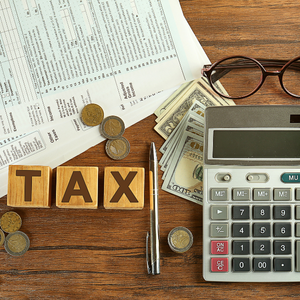
Capital gains tax is quite complicated to figure out, as is any form of tax, and it becomes even more challenging when property is involved. This complexity increases when sales span multiple states and territories, as is the case with the state of Alabama and the city of Huntsville. This guide assists clients in sorting through the tax implications of property sales with the help of capital gains tax calculators, supported by the expertise of North Alabama House Buyer, to help maximize their payoff when closing a sale. It is also designed for clients who may still be considering whether to sell, providing clarity to make the process as simple and streamlined as possible. Use this guide to understand the scope of taxes involved and make informed decisions to maximize profit.
Understanding Capital Gains in Huntsville, AL
In Huntsville, AL, as a homeowner, the impact of capital gains on your financial planning and the taxes you will owe will be substantial and need to be accounted for. The gains need to be identified, the different assets they pertain to, and how the gains are classified. You can earn capital gains from various investments like real estate, stocks, and other financial instruments.
These are important to know as they assist you in effectively utilizing capital gains calculators to compute your potential tax obligations. These concepts will assist you in understanding the tax system in Huntsville and prepare you for the tax consequences it will levy.
Definition of Capital Gains in Huntsville, AL

Investors try to earn a profit by looking at the difference between the selling price and the price at which they purchased an asset. These profits are significant to Huntsville, AL, investors and affect a broad class of investments, including real estate and securities. For a proper Calculation of capital gain, it is necessary to know the original purchase price or basis of the investment, since it has an impact on the net gain realizable. There is a distinction between long-term gains, which are usually taxed at a lower tax rate, and short-term gains, which are taxed at ordinary income rates, depending on the holding period of the asset. This distinction is important, especially to the investors with a diversified investment portfolio in Huntsville, AL, which may significantly affect the gains tax liabilities.
Most particularly for the real estate investors, it is essential for the real estate investors of this place to understand how the capital gain works and the tax it brings. This is the point where a capital gain tax calculator becomes handy, as it will help to assess the possible tax liability and will help to understand how capital gains are calculated. There are factors that affect capital gains, and having an understanding of this will help to negotiate and avoid unnecessary capital gains tax, and thus help to obtain the investment and gains to a higher level. The knowledge that Huntsville gains to understand and manage is best for the investors to understand and manage. This type of knowledge is able to ease the tax organization and planning of the investment and gains tax.
Types of Assets and Gains
In Huntsville, Alabama, some types of available assets accrue to and impact tax strategies differently than capital gains. Real capital gains, especially pertaining to single-family residential real estate, are very important to understand when considering selling a property permanently. The capital gain from selling residential real estate is valuable, and it is important to understand this gain, and how this gain from selling real estate is taxed. Aside from real estate, other assets, most notably stocks and bonds, also generate capital gains. Gains from these types of investments are realized when the price of the investment, or when the stock or bond market, increases, and this is made more prevalent in growing cities like Huntsville, Alabama. It i also important to understand the difference between short and long-term gains. Long-term gains from these assets are favored, whereas short-term gains are taxed at a higher rate.
It is very important to secure the services of a qualified professional in these matters. A capital gains tax calculator is invaluable in this respect, as it calculates the tax owed based on the asset type and holding period. In addition, the impact of your business or investment portfolio is also important, as the timing and nature of the gains are determined by the extent of diversification. To derive maximal benefits, it is important to include net gains and the tax losses to be incorporated in the tax estimate to be derived. In this manner, it is possible to attain the desired result, taking into consideration your investment strategy. This, undoubtedly, will serve the Huntsville tax objectives. An understanding of the various asset types and gains will underpin effective tax planning in this area.
How to Calculate Capital Gains in Huntsville, AL
To identify potential capital gains, homeowners in Huntsville, AL, need to identify and analyze the difference between the asset’s acquisition cost and selling price. The primary question is, are these calculations worth the time and effort? Answering that question positively is especially true when the asset being sold is real estate. The real estate, hopefully, is an asset that has appreciated in value, and the owner is looking forward to selling and realizing the gains. For homeowners in Huntsville, knowing the intricacies of this calculation is important to avoid tax overpayment. Using capital gains calculators on websites specialized for this purpose may provide ease in these estimations and the accompanying tax liabilities. The remaining sections provide homeowners with valuable tips and the necessary estimations that they need to make the process calculation seamless.
Step-by-Step Calculation Process
For capital gains tax, the first step is determining the cost basis, or the original purchase price of the asset. For most homeowners in Huntsville, AL, this is the purchase price of the property, including any additions, plus any closing costs, as both can raise the basis, and in turn, the net gain from the sale. Keep in mind any depreciation, particularly for properties held in a rental real estate business, as this may reduce the basis and ultimately result in a higher gain subject to tax. Then establish the selling price, as well as any selling expenses, to arrive at the net proceeds. The capital gain is the difference between the sale price and the adjusted purchase price. The use of a comprehensive tax calculator can simplify this process and ensure that all variables are captured and adjusted for.
A critical part of this computation is knowing the holding period of the asset. This determines whether your gain is long-term or short-term, each of which incurs different tax liability. Long-term capital gains are applicable for assets held longer than a year. This is also the bracket that gets lower tax rates, but for assets held less than a year, they are short-term gains that are taxed as ordinary income. For someone trying to maintain a tax-efficient active investment portfolio, the understanding of these intricacies ensures more tactical sale transactions and minimization of tax liabilities. Also, tax policy and rates applicable to Huntsville, AL, make it important to understand local tax law for liabilities, tax exemptions, or tax deductions. A specialized calculator not only addresses these challenges but also helps you manage the other variables and aid in your investment planning.
Key Considerations for Homeowners
Managing capital gains, homeowners in Alabama, Huntsville, must approach this task with caution and care, considering a number of unique aspects. First, it is important to determine whether there are any applicable exclusions or exemptions. For instance, the primary residence exclusion allows single homeowners a tax-free gain of $250,000 and $500,000 for married couples. However, this exclusion is subject to being met based on the residency and usage criteria, which can lessen the gain in taxable income significantly. Furthermore, depreciation recapture provisions can be a factor that complicates the calculation if there has been any previous business use of the home.
State-specific tax subtleties need to be considered as well. Other than federal tax rates, capital gains tax varies at the state level, and at times, capital gains tax levies might come from the state you are filing from and at times the state you are filing to, and it affects the net proceeds as well. In Huntsville, the meticulousness needed to combine the local tax policies and capital gains tax calculator to avoid uncalculated tax gains is one level higher than the rest. In addition, specific Huntsville economic elements like property value movement and other factors might make it more financially beneficial to keep the sale until a value peak, and that economically impacts the sale date. All these factors, to help and equip the homeowner with the confidence to conduct the sale of the property in a way that also syncs/benefits other financial and/or investment strategies a person might have. Finally, tax planning and calculating capital gains in a strategically informed way turns out to be the factor that makes the homeowner manage their financial position to the fullest.
Exploring Capital Tax Rates in Huntsville, AL
For homeowners in Huntsville, Alabama, improving your financial outlook starts with understanding how various capital gains tax rates work. These rates directly impact the profit you keep from selling an asset, making it essential to understand what affects them. This section outlines the tax rates relevant to Huntsville and explains the key factors that influence them, including the type of asset, how long it was held, and local regulations. By learning how these elements work together, property owners can better manage their tax responsibilities, reduce the amount owed, and make more informed decisions about their Property Tax Rate as part of their overall financial planning.
Current Tax Rates in Huntsville, AL

The City of Huntsville, AL, has some Local and Federal considerations that influence the tax rate for Capital Gains. Longer-term capital gains, which are the profits made after selling an asset that one has owned for over one year, receive preferential tax treatment compared to short-term gains that are taxable after one year. The Federal tax rate for long-term capital gains on Federal Long Term Gains Tax is either 0, 15, or 20% and that depends on the level of your taxable income. Alabama, like other states, does not have a capital gain tax on a state level; however, the overall taxable income, which does include capital gains, falls under the state’s income tax system for Alabama, which is a 2% to 5% range, based on your taxable net income.
Concerning Huntsville, market trends and regional economic activities impact your tax rate outcomes. Huntsville has an expanding economy, and there is increasing real estate development, which affects the value of your assets. This improvement can cause higher realized gains. Therefore, the federal tax rate and any state income taxes need to be considered in your calculations. A personalized calculator created for Huntsville can help in calculating the real effect of these taxes on your assets, ensuring you include every different rate and deduction. It is essential to evaluate opportunities for deferral of taxes and the timing of sales to more favorable tax conditions to reduce your overall tax burden. This is the optimal method to reduce your tax burden.
Factors Affecting Tax Rates
When evaluating Huntsville, Alabama, the tax considerations related to capital gains involve a number of different variables. One major factor is the length of time an asset is held. This translates to being long-term or short-term, which is a major determinant of the tax rate. For example, assets held for more than one year are eligible for a significantly lower federal tax rate. Also, the level of the taxable income being reported is a factor. The most significant tax brackets apply to those who report the highest income levels. As a point of clarification, while Alabama does not tax capital gains as a stand-alone item, such capital gains will affect your total taxable income level. This, of course, has a bearing on what the state tax will be. District or local property regulations, incentives offered by the government, and fluctuations in asset valuation can change the net monetary obligations. For example, depreciation of a rental property will decrease the basis and, as a result, impact the taxable gain.
Capital investments and business accounts in Huntsville can add even more complexity to the equation. This is especially the case when the asset classes are spread out in a more diversified portfolio. The applied tax rate has the potential to differ based on asset classes. Federal and state guidelines differ and are, therefore, another consideration when evaluating the portfolio. Using capital gains tax calculators is a means by which more clarity can be attained regarding one’s liability concerning investments. Such calculators allocate adequate strategic planning concerning one’s finances. The most complex structures are often owned by the property owner who has business assets or business properties of mixed uses. Understanding all of the factors can result in more efficient tax planning, especially when teamed with the use of a tax calculator or even receiving professional guidance. The anticipation of such strategic planning usually results in a lower impact of the tax, preserving more of the capital.
Strategies to Lower Capital Gains Taxes in Huntsville, AL
There are specific approaches that involve effective use of tax planning, tax deduction, and exemptions that will enable you to lower capital gains tax. Huntsville, AL, homeowners can effectively eliminate capital gains tax obligations if they plan their taxes effectively. Planning allows you to decide on the most appropriate timing for the sale of the assets. Timing your asset sale properly can help you reach your financial goals and handle taxes more effectively.
| Strategy | Benefit | Implementation | Conditions |
|---|---|---|---|
| Tax-Loss Harvesting | Offset gains with losses | Sell losing investments | Applicable when market down |
| Holding Period Extension | Lower long-term tax rate | Hold assets over a year | No urgent need for liquidity |
| 1031 Exchange | Defer tax on real estate gains | Reinvest in similar assets | Property must qualify as like-kind |
| Invest in Opportunity Zones | Potential tax deferral and reduction | Fund projects in designated areas | Must adhere to specific deadlines |
This table offers an overview of crucial strategies for reducing capital gains taxes, demonstrating how effective planning and smart utilization of tax benefits can enhance financial outcomes.
Effective Planning Techniques
In Huntsville, Alabama, there are effective methods of tax planning that help individuals mitigate capital gains taxes. Homeowners and investors need to understand specific tax rates when deciding on when to time the sales of assets. In the case where an investment is held for longer than a year, an individual qualifies for long-term tax rates that are lower, thus maximizing profit and minimizing tax liabilities. Furthermore, tax-advantaged accounts such as IRAs or 401(k)’s and diversified portfolios help reduce taxable gains. For better financial stability, tax planning as a whole should be integrated with the ability of a person to keep up to date with the ever-changing local economic conditions and shifts and trends within the real estate of their area. This way, they can resell their assets when they are at their peak value.
Enhancing Financial Planning Strategies
- Conduct periodic assessments of asset strength versus market performance to determine necessary changes to stay on target financially.
- Utilize tax-loss harvesting strategies to lessen tax burdens and potentially enhance return on investment.
- Consider gifting appreciated assets to family members to make use of unlimited gift tax exclusions and facilitate wealth transfer.
- Select tax-efficient funds to lessen the tax impact on your portfolio by lowering taxable distributions to lessen the impact on your tax.
- Work with your financial advisors to ensure that plans reflect particular circumstances so that the strategies are relevant and successful.
- Invest in knowledge regarding tax changes that impact investments so that you can stay ahead of changes that impact your financial plans.
- Build cash reserves for anticipated tax liabilities to ensure you’ll be ready for tax payments without interruptions in cash flow.
Reviewing the above steps will allow people to further streamline and enhance the strategic management of their finances by integrating the theory and practice of financial management in a frictionless manner.
Utilizing Tax Deductions and Exemptions in Huntsville, AL

Choosing what expenditures to pay taxes on and what to utilize available tax deductions and exemptions is vital to pay less taxes on capital gains. As for Huntsville, AL, frontline homeowners’ exemptions would seem to be a primary residence exclusion, that is, if single, one can exclude capital gains for up to $ 250,000 on the sale of the home, if married, it is $ 500,000. There are requirements for one to obtain the exclusion; for instance, the Homeowner must have used the home as their primary residence for at least two of the last five years. There are significant tax savings as this exclusion lowers your capital gains to tax. Not only that, but explore further deductions that would reduce capital gains to be taxed.
For example, expenses incurred from renovations and repairs may be capitalized and added to the asset’s base cost, which reduces the taxable profit from a future sale. In addition, business owners and rental property owners may qualify for tax reductions through depreciation, which lowers their overall tax responsibilities by offsetting part of the gain on the asset. Tax-deferred investment options, such as 1031 exchanges, can also be used to maximize savings by delaying taxes on capital gains from real estate sales. These strategies are important for traditional sellers as well as cash home buyers in Huntsville or in nearby cities, who often rely on tax-efficient methods to optimize returns.
When determining your financial outcomes on a sold property, the nuances of capital gains tax in Huntsville, AL, are very important. Tools such as a capital gains tax calculator can help estimate your tax liability, while professional financial advice provides a more complete strategy for managing your obligations. With timely and proactive planning, home sellers can move forward with confidence and achieve positive results as they fulfill their financial responsibilities. These considerations are especially helpful for anyone working with a company that buys homes in New Market or in nearby cities, ensuring they fully understand the tax impact of their sale.
FAQs
What is capital gains tax, and how does it apply to homeowners in Huntsville, AL?
Capital gains tax is a tax levied on the profit made when reselling an asset (such as property or stock) for a price higher than its original purchase price. Homeowners in Huntsville, Alabama, have to understand capital gains taxes when selling the property, as it impacts the overall profit as well as the taxes that have to be paid afterward.
What is the difference between long-term and short-term capital gains?
In Huntsville, AL, investors and homeowners that have a portfolio of a variety of assets are affected by the whereby assets are kept for over a year, as the long-term capital gain from the sale of the asset will be taxed at a lower rate than that which is applied for short-term capital gain, which is the sale of an asset held for a year or less, as the net sale of the asset is taxed as ordinary income.
How can a capital gains calculator help Huntsville homeowners?
If someone were to sell a home in Huntsville, a capital gains calculator would assist that individual in determining any potential tax liability by calculating the asset type, purchase and selling prices, and holding period. This would enable the individual to plan and manage their finances effectively.
What strategies can homeowners use to lower capital gains taxes in Huntsville?
For instance, employing tax strategies, such as the primary residence exclusion, as well as timing the tax asset sales to take advantage of long-term capital gains rates, can be considered. Furthermore, homeowners can explore the possibilities of investment diversification and the use of tax-advantaged accounts.
Are there specific tax exemptions for primary residences in Huntsville, AL?
Homeowners who file individually have the potential to write off $250,000, and married couples are allowed to write off $500,000, during the sale of their primary home, assuming the occupancy rules and use policy are satisfied.
Looking to sell your home and understand your potential tax obligations? Use our Capital Gains Tax Calculator to estimate what you may owe before selling. North Alabama House Buyer is here to help you sell quickly, avoid costly repairs, and enjoy a hassle-free process. We offer fair cash offers, handle all the details, and make the entire sale simple and stress-free. Have questions or ready to get started? Contact us at (256) 824-9181 for a no-obligation offer today!
Helpful Huntsville Blog Articles
- Selling A House With Title Issues In Huntsville, AL
- Selling An Inherited House In Huntsville, AL
- Homeowners Insurance Tips For Selling Your House In Huntsville, AL
- How To Sell Your Huntsville, AL, Home With A Lien
- Guide To Selling A Home With A Reverse Mortgage In Huntsville, AL
- Sell Your Home Needing Repairs Fast In Huntsville, AL
- Navigating Closing Costs Without An Agent In Huntsville, AL
- Living In A House During Probate In Huntsville, AL
- Selling Your House In Huntsville, AL, And Relocating Out Of State
- Selling Your House By Owner In Huntsville, Alabama
- Sell Home to Pay Off Debt in Huntsville, AL
- Selling Inherited Property in Huntsville, AL
- Selling an Inherited House with a Sibling in Huntsville, AL
- Huntsville, AL Cost of Living
- Huntsville, AL Closing Costs Calculator

